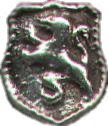Otherwise known as "My Weekend of TV Movie Hell"
Disclaimer: I watched these on Sci-FI channel, while I was getting on with other things. I like background noise in the flat. As a result, these films might not be as bad as I thought. Conversely, they might be much worse.
I write this in the hope you'll avoid my fate and steer clear of these movies.
Descent
OK, so I started with Descent, starring Luke Perry. What is it with Luke? He's like Dracula. No matter how many god awful disaster TV movies he makes, no matter how many times the wooden stake of terrible reviews are driven through his heart; he just won't die.
This film is an almost word for word clone of The Core. I wouldn't be surprised if they were written by the same person. I would go and check on IMDB, but that would require me to give a damn, and after watching this sham of a movie, I just haven't got the energy. My get up and go, got up and went during this film.
As I mentioned, it's very similar to The Core, including their attention to detail on things like physics, geology, nuclear reactors, tectonic plate theory and pressure.
Are there any differences between this, and The Core? Yes. Here, it's not the core that's stopped spinning, it's a lower tectonic plate that's moving and forcing the pacific plates to move, increasing volcano activity and creating earthquakes.
However, the similarities are too numerous to ignore:
The problem has been caused by the US government
There's a turn-coat in the team.
Everyone's playing bit parts from "stereotypes-r-us".
The answer is nuclear explosions.
There's a bit about hacking the vehicle's navigation system.
Score: Luke Perry out of a possible Matthew Perry.
Solar Attack
Oh dear god, where to begin...
This one started so well. Strange sun activity sends solar eruptions known as Massive Resonance Eruptions (MRE) towards Earth. I was happy with this, it's scientifically sound. We get hit with these all the time. So frequently and so widespread is the damage to satellites and power distributions systems, that Nasa positioned the
Then it happened. The lead scientist (who of course has a wild crackpot theory which turns out to be true) tell the stuffy, stuck in his ways Nasa man that the eruptions will ignite large pockets of methane in the upper atmosphere, which will then consume all the oxygen on Earth.
OK, I can still buy this, it's a little off kilter, but it's still just plausible enough to work as a plot device.
Aha! Says stuffy, stuck in his ways Nasa man. But the ozone layer will protect us!
Nu-uh! Says lead scientist, because we keep punching holes in it!
Bugger! Says stuffy, stuck in his ways Nasa man (after a lot of convincing).
Hang on! Back the train us, says I. Ozone layer? How about: No, you crazy dutch bastard! Even a children's encyclopedia would have told you that was wrong. It's the Earth's magnetic field that protects us against MREs, but only ones with a similar magnetic polarity. Opposite polarity MREs pass straight through it. That fact would have worked great as a plot device, especially since in four years time, Nasa is launching the replacement for SOHO that will not only monitor the MREs, but also tell us the polarity before they hit.
Add in some gubbins about the MREs physically knocking satellites out of the sky, another bunch of stereotype acting and one major plothole, and you've got a true 'disaster' of a movie.
Anyway, the solution is to use
OK, so for those interested enough, the lead scientist starts the movie with the launch of a manned probe into space, launched on the back of an airplane, which is then destroyed by an MRE hitting one of the methane pockets he was looking for, thus igniting it and destroying the craft. There follows TV footage of the break-up of the probe. But if the break-up was visible from the ground, why wasn't the fairly massive methane explosion seen?
Score
3/10 Merely for the effort of trying to make the science sound sensible. But several points for not bothering to check what the ozone layer does or find out about MREs
No comments:
Post a Comment